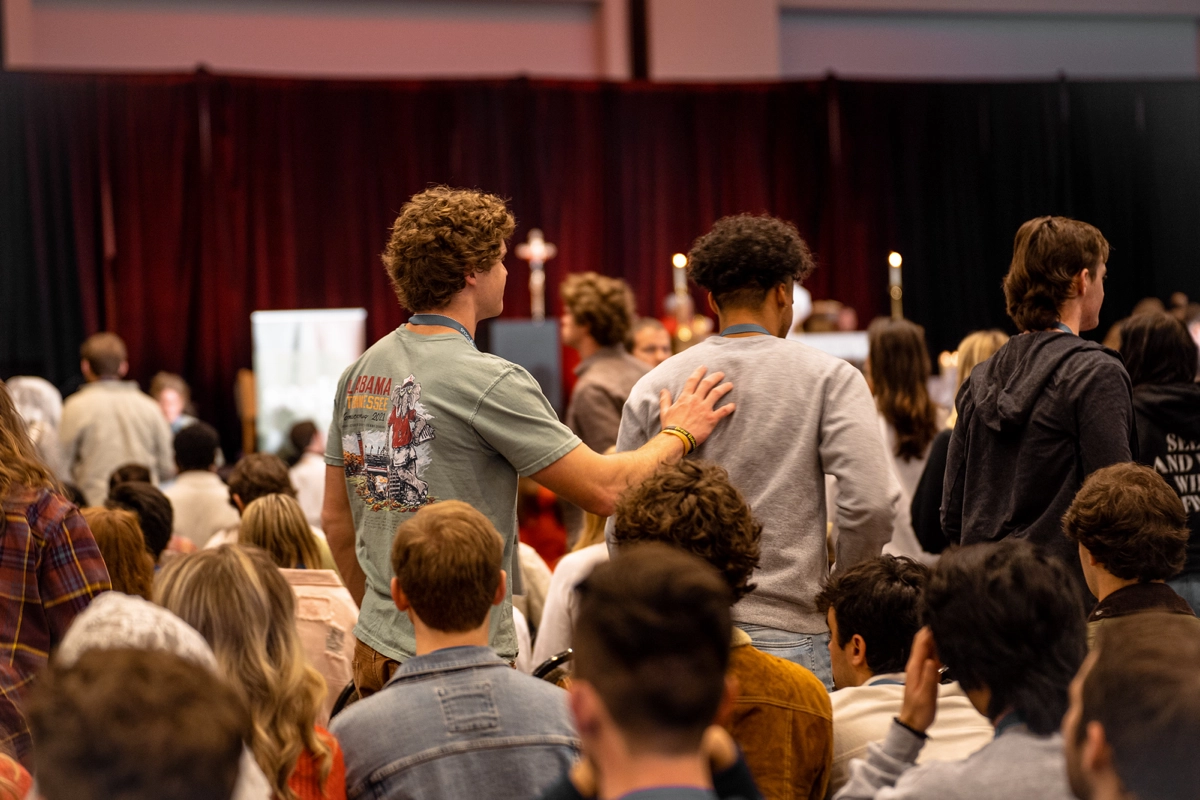A Broken Heart
I often hear young people in leadership expressing how they need the correct answers. They desire to be perfect. They want to show they have what it takes. This anxious spirit leads them to be tentative in teaching, to not utilize their gifts, and to not rely on God’s grace. Today, many people struggle with a fear of failure and the false pursuit of perfectionism. The great King David can help us in these moments: in these moments, instead of giving into our fears, we can learn from David how to lean into our experience of failure and repent with a broken heart.
The Fall of David
King David became the great leader of Israel, the one they longed for. He had returned the Ark to Jerusalem, fought and won wars, and had the respect of his mighty men and all the people. But during this season of victory, David grew lax in his duties. As written in my last post, David was devoted to his daily responsibilities as a shepherd. These day-to-day duties were the training ground for him to defeat Goliath and become the mighty King. His daily responsibilities had changed, but the call was still the same. 2 Samuel 11 states, “In the spring of the year, the time when kings go forth to battle, David sent Jo′ab, and his servants with him, and all Israel; and they ravaged the Ammonites, and besieged Rabbah. But David remained at Jerusalem.” David is sending out his men to fight, but it is the “time when kings go forth to battle.” This moment is the first sign that David is letting his guard down. In the following verses, David sees a beautiful woman bathing who is one of the soldier’s wives. He seduces her and later finds out she is pregnant with his child. In the spiral effect of sin, he tries to hide his sin, and when that fails, he decides to send Bethsheba’s husband to the frontlines and have him killed in battle.

The Need for Friends in Leadership
David’s lack of attentiveness to his duties led him to murder in order to hide his shame. While these acts are horrendous, it is not the end of the story. Our God is much too good to leave his King in despair. David had a fantastic friend in his life. God sent the Prophet Nathan to go to David to call him back. Nathan shares a powerful story with his friend about a jealous and self-centered man takes what another loves for himself; David’s emotions are roused against the man in the story. Nathan looks at his friend with great love and shares with David, “You are the man” (2 Samuel 12:7). We all need friends to call us back to the greatness we were once pursuing. J.R.R. Tolkien masterfully grasped this need for friendship and wrote about it in his classic The Lord of the Rings.
As Frodo tries to escape the black riders and leave the Shire, he comes across his friends Merry and Pippin, who help him hide for the evening. Frodo asks his friends not to go on the incredible journey with him because he doesn’t want to burden his friends. He asked if he could trust them. Merry replies,
“It depends on what you want…You can trust us to stick to you through thick and thin — to the bitter end. And you can trust us to keep any secret of yours — closer than you keep it yourself. But you cannot trust us to let you face trouble alone and go off without a word. We are your friends, Frodo. Anyway: there it is. We know most of what Gandalf has told you. We know a good deal about the Ring. We are horribly afraid —but we are coming with you; or following you like hounds.”
There is a great temptation for leaders to isolate themselves and bear the burden of their leadership alone. But God never calls us to isolation. Yes, we need solitude and time for seeking deeper communion with God, but never isolation from our friends and the people we lead. Leaders need friends who will bear the burden and call them to greatness.

Leadership with a Broken Heart
David’s encounter with Nathan leads him to repentance. David suffered much for his unfaithfulness and felt the pain of his sin for the rest of his life. However, he prayed to God and poured his heart into Him. It was this experience that led David to write the masterful Psalm 51. Near the end of that Psalm, David exclaims, “The sacrifice acceptable to God is a broken spirit, a broken and contrite heart, O God, you will not despise” (Ps 51:17). David had come to realize deeper what true worship was before God. In his brokenness, he relied more upon God than ever before. Of course, he trusted God to fight his enemies and win battles, but God was more engaged in the struggle for David’s heart.
Today, there is a growing population of people understanding their brokenness can be the foundation for their leadership. While I would not recommend that we should go around sharing our brokenness at every moment, we need to be deeply aware of it to grow. Daniel Pink’s book The Power of Regret captured our needs.
“Regret is the quintessential upward counterfactual—the ultimate If Only. The source of its power, scientists are discovering, is that it muddles the conventional pain-pleasure calculus. Its very purpose is to make us feel worse—because by making us feel worse today, regret helps us do better tomorrow.”
Pink recommends that people look, write and process their regrets, so they can continue to grow. He recommends exercises like writing about them for 15 minutes daily or sharing them with a faithful friend. King David poured out his broken heart to God in prayer. These prayers are now captured in what we call the Psalms.
The Leadership Prayer Book
The Holy Spirit has given us the Psalms to be our prayer book. The Church has the beautiful practice of the Liturgy of the hours that our priests and religious pray daily, as well as encouraging the involvement of the laity. Another way to get started is to choose one or two Psalms daily to pray through. If anything, praying Psalm 51 on Fridays could be a powerful way of bringing our broken hearts to the Lord and asking Him to guide our actions as leaders. We are not the sum of our regrets and failings. When we bring these to Jesus, we encounter His love, mercy, and delight in us. St. John Paul II writes,
“We are not the sum of our weaknesses and failures, we are the sum of the Father’s love for us.”
Yes, each of us does “fall short of the glory of God” (Rm 3:23), but this does not define us. It is the Father’s delight in each one of us that gives us our identity and mission. We may have broken hearts and many regrets, but these are moments for beginning again. We exclaim with St. Paul, “I can do all things in Christ Jesus who strengthens me” (Phil 4:13).
